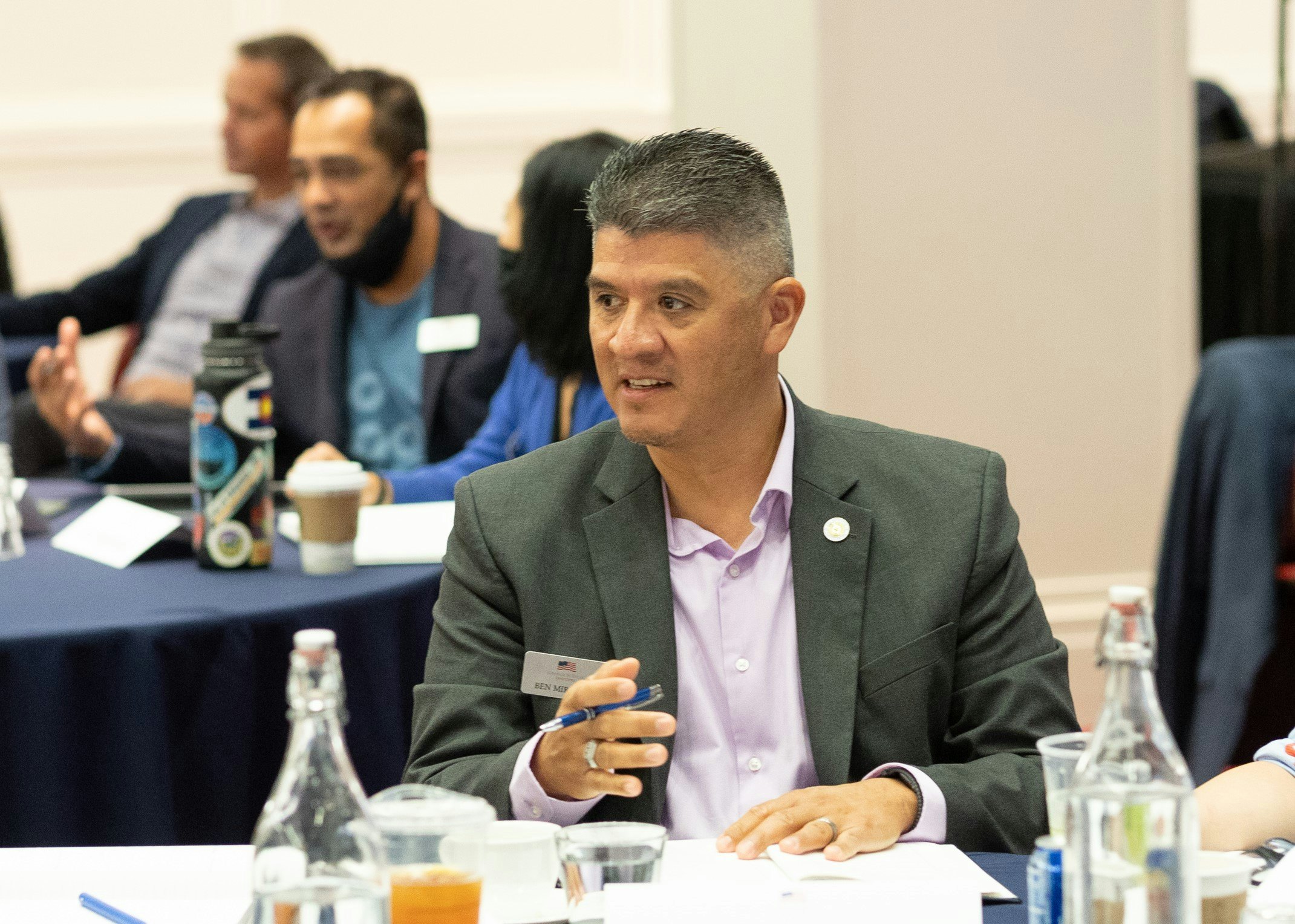Guest contributor Aimee Johnson, a Bush Institute Stand-To Veteran Leadership Scholar alumna, shares about her work to help veterans in crisis.
I’ve always been intrigued by human behavior and have spent my career trying to both understand and empathize with people when they are hurting, while working to help them walk through that pain to find healing and resilience. I, too, have benefited from people either walking next to me, leading me, or walking behind me until I could arrive in a place of healing.
Motivated to work with service members and veterans by the American service members who found my late grandfather and great- uncle soon after they had escaped the torture of the Nazi’s; I’ve had the privilege of working with many people during their own crisis. I consider it a way to pay forward the second chance at life that our family was given by service members.
Understanding generational trauma, emotional pain from life events, and being impacted by suicide at a young age, helped to shape my future role as a clinical social worker. During times of working with youth who were incarcerated, in emergency rooms, counseling people as they walk into or avoid vulnerability in my office or speaking with me by phone, I can tell you — people weren’t worried about my political beliefs, my religious roots, whether I served in the military, where I had graduated, what my resume or income was, my race, gender, sexual identity…none of it.
Instead, I have consistently experienced that people in crisis want to be received with compassion, embraced with validation, encouraged to open-up and most of all they respond to hope. Hope that their problems could be lessened. Hope that what they are struggling with — others have too, rather than experiencing isolation or burdensomeness. Whether their pain is physical, emotional, mental or spiritual — or all of the above, hearing that the pain could be lessened provided a dose of hope.
Most of us have been impacted directly by loss from suicide, having known someone who died by suicide and the complicated and devastating impact that can leave on so many. However, I have known and been impacted by far more people who have survived suicide and are thriving. For many, part of how they survive is by not having immediate access to a lethal way of dying while in a crisis.
- Storing firearms, medications or other potentially harmful items in the home securely and responsibly, or even removing them temporarily, can mean the difference between life and death to someone in crisis
- Encouraging people to seek emotional, mental and/or spiritual help and sharing our own experiences of overcoming crisis and pain can be validation to someone suffering
- Treatment for problem drinking and/or other substances can work; after all addiction is defined as a disease, rather than a failure of will
Leaders across the world can go a long way to help carry these messages and spread a dose of hope. Through my recent experience in the Bush Institute’s Stand-To Veteran Leadership Program, I am energized to carry the message of hope more broadly. President George W. Bush and the team at the Bush Institute have made a commitment to developing and supporting effective leaders around the globe through various programs. By focusing resources on advancing the overall wellness of post -9/11 service members and veterans, the Bush Institute is influencing junior and senior leaders, providing them with the skills and resources to reflect their own values through their impact and leadership – and challenging these leaders to increase their impact on the nation and the world.
Join us. Help spread hope so that people in our lives know; pain is temporary and that emotional crisis or even thoughts of suicide can pass — they don’t have to be acted on. The way we carry these messages speaks to our values. I challenge you to reach out to your personal and professional networks — share a dose of hope, you just may save someone’s life.
Get involved. Connect with fellow veterans. Or find the clinical care you need through the Warrior Wellness Alliance: https://www.bushcenter.org/warrior-wellness/clinical-care.html .
Veterans who are in crisis or having thoughts of suicide, and those who know a veteran in crisis, can call the Veterans Crisis Line for confidential support 24 hours a day, seven days a week, 365 days a year. Call 800-273-8255 and press 1, send a text message to 838255 or chat online at https://www.veteranscrisisline.net/get-help/chat .
Reporters covering this issue are strongly encouraged to visit www.reportingonsuicide.org for important guidance on how to communicate about suicide.
Aimee Johnson is a Program Analyst on the national suicide prevention team, Office of Mental Health and Suicide Prevention at the Department of Veterans Affairs. Aimee is a 2019 scholar of the Bush Institute Stand-To Veteran Leadership Program.






























